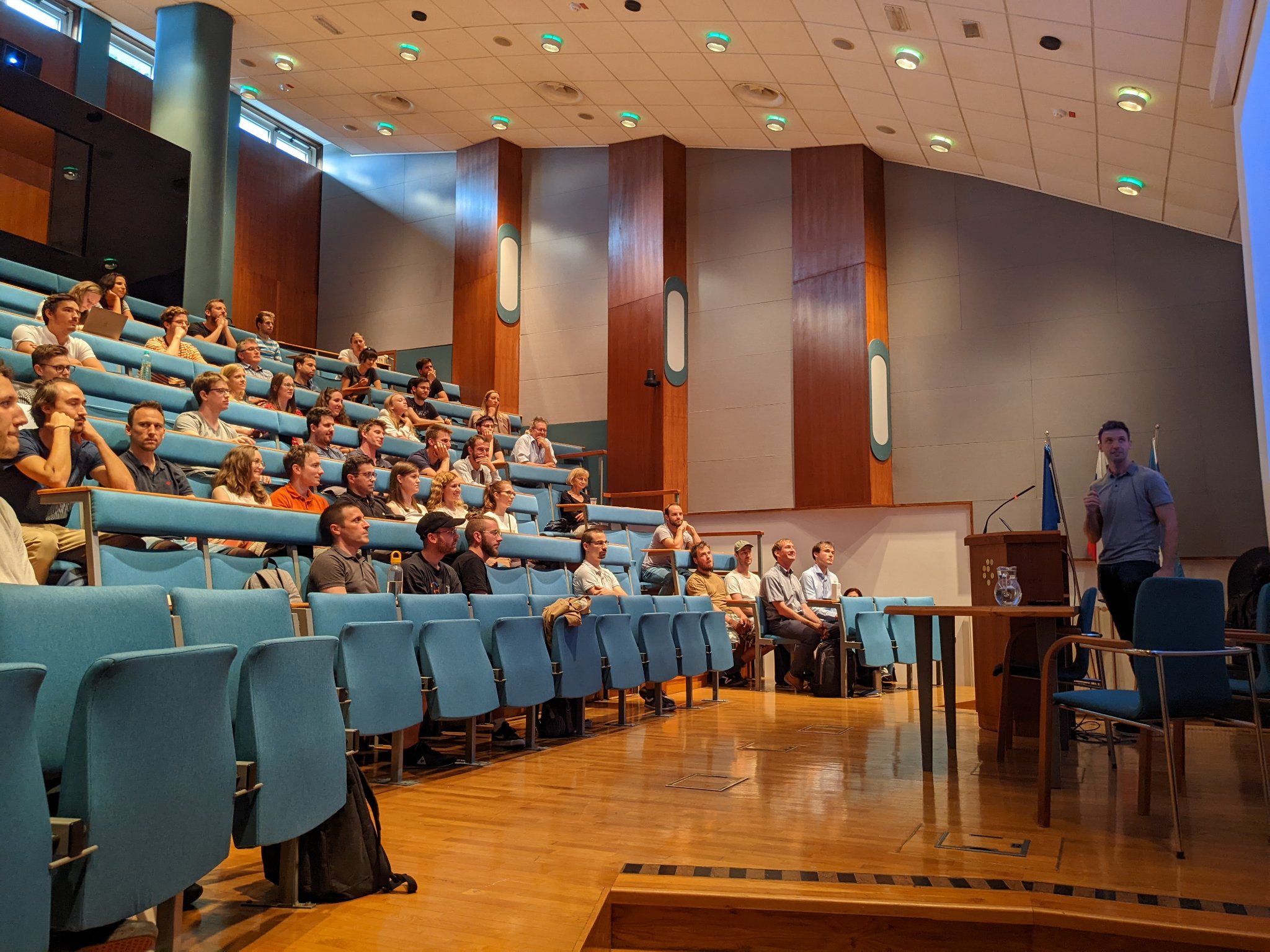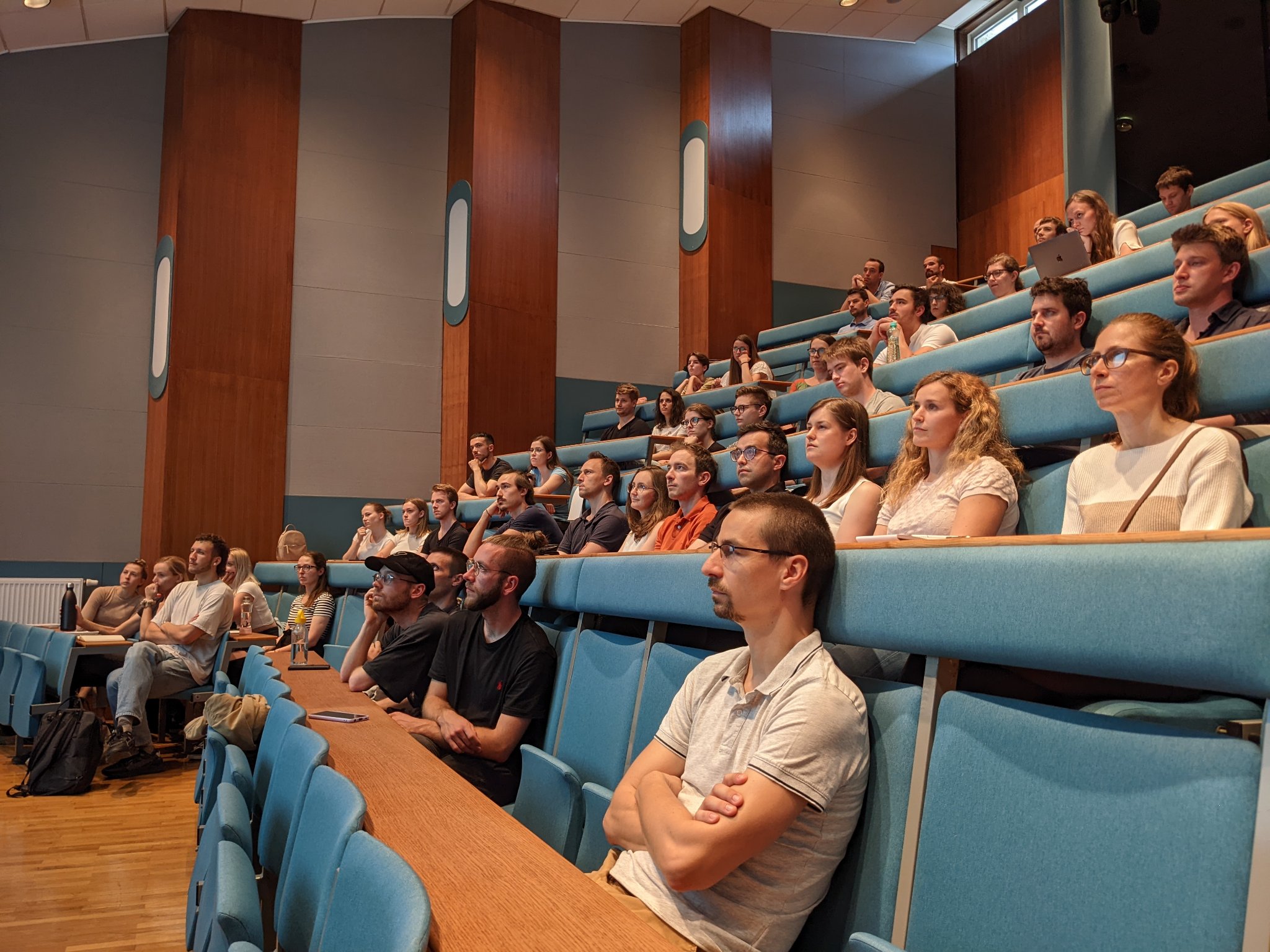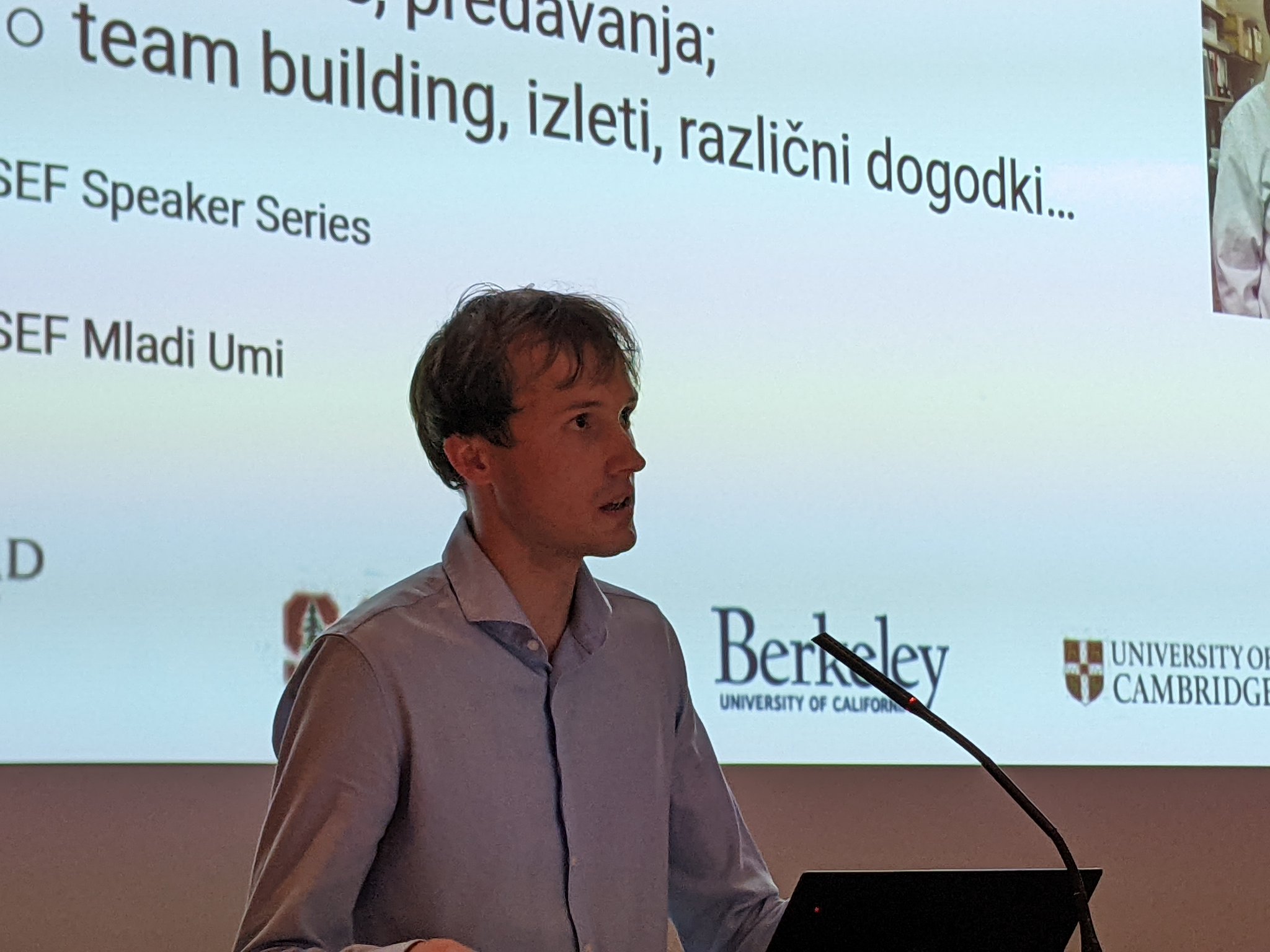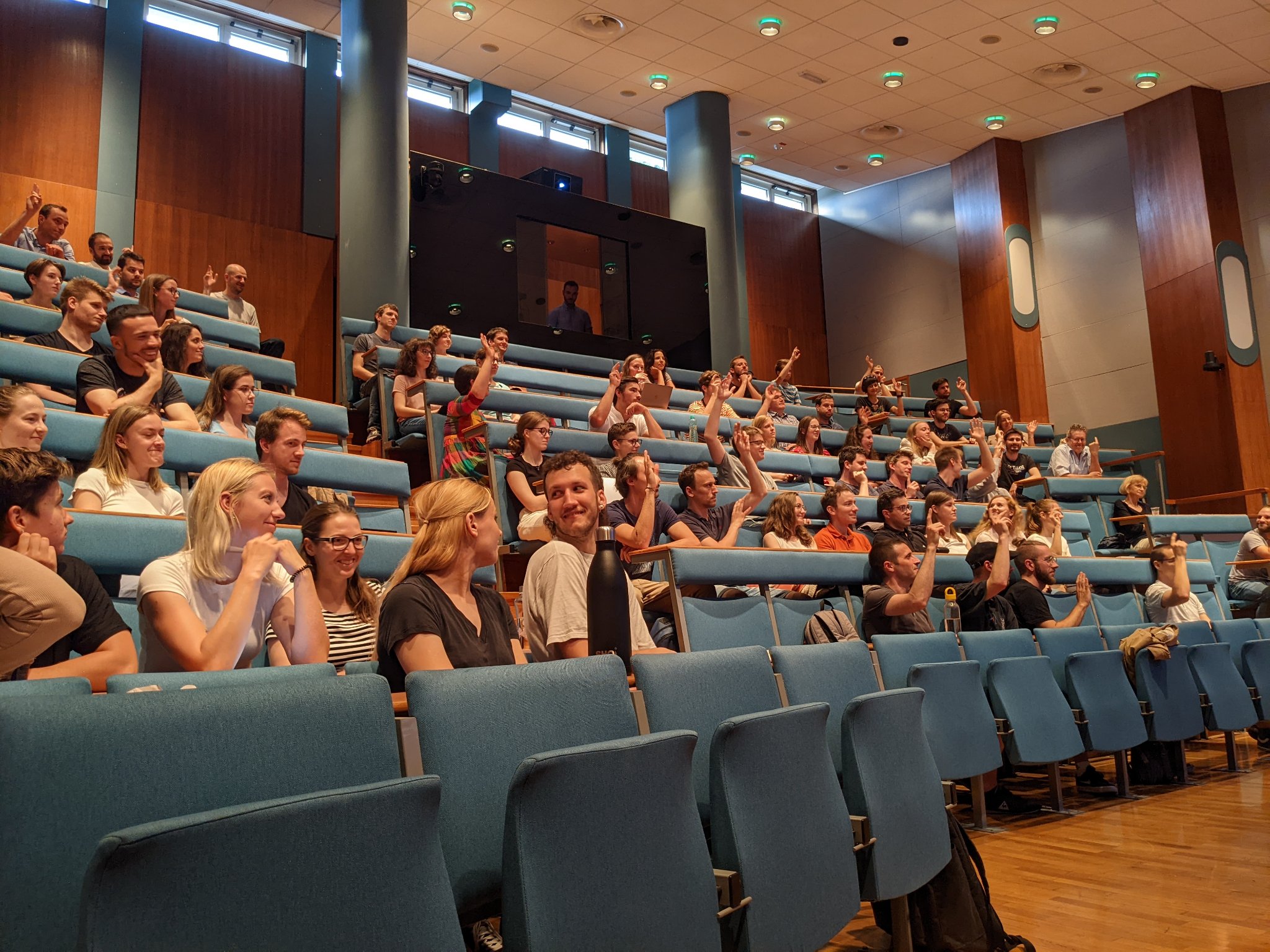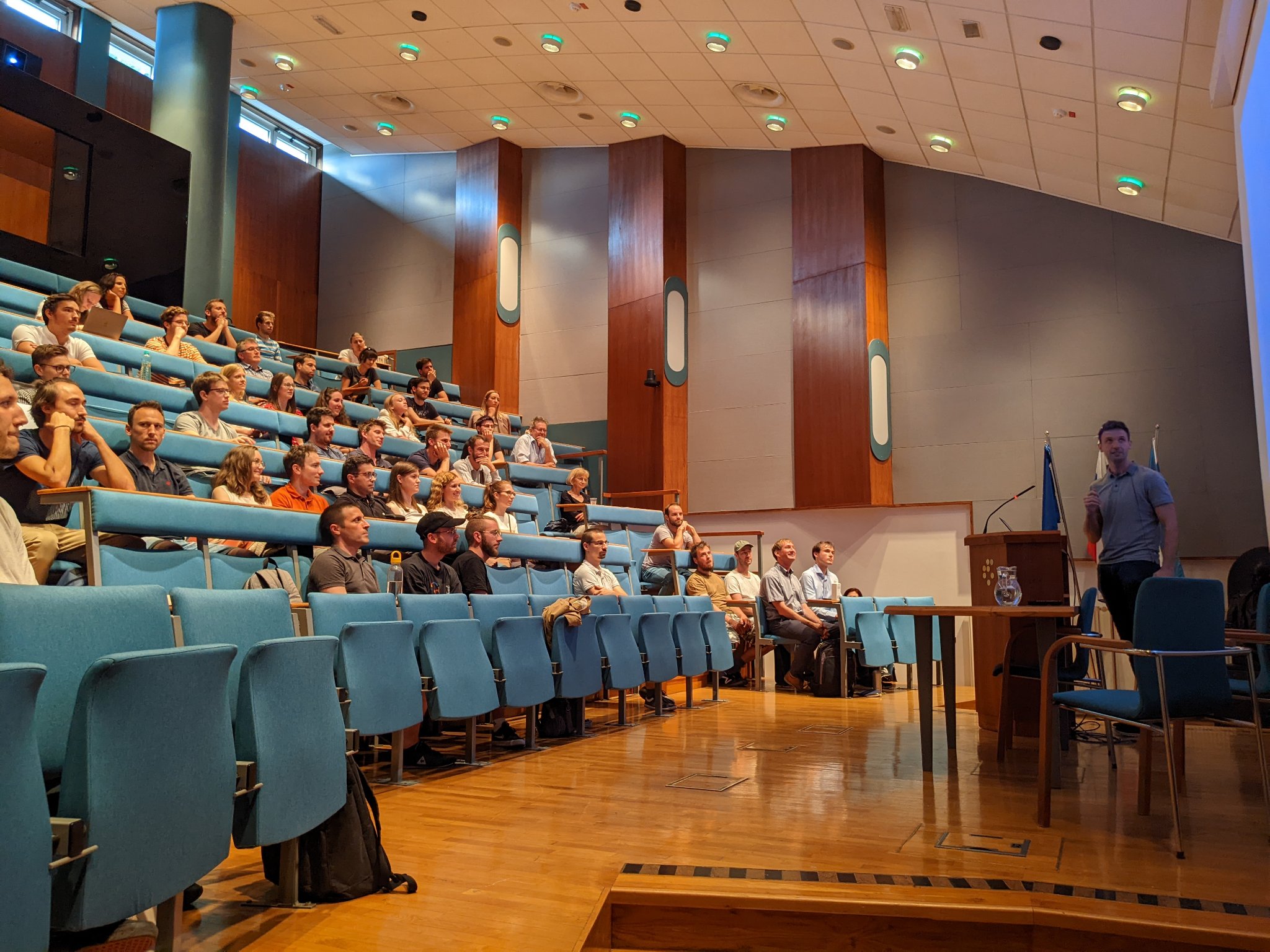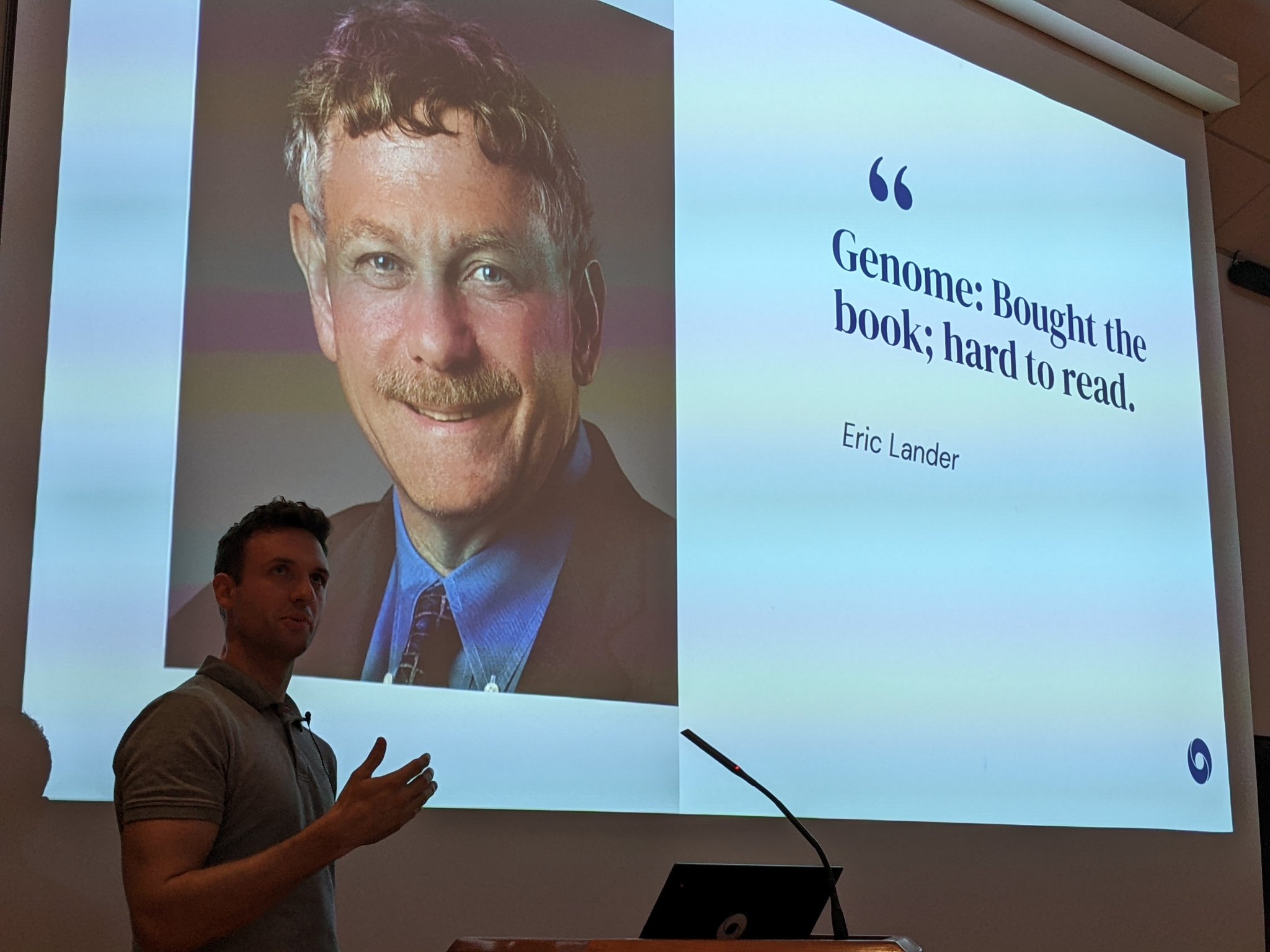
Understanding the Human Genome Through Artificial Intelligence
On Thursday, June 2, ASEF is within the section of ASEF Speaker Series together with Solomon’s seminars organized lecture performed by dr. Žiga Avsec entitled: “Understanding the human genome through artificial intelligence”.
In the introductory part of the lecture, dr. Avsec, a scientist employed by Google’s DeepMind, briefly presented some basics about the human genome and the importance of sequencing. Namely, DNA carries genetic information that determines various characteristics, such as eye color or susceptibility to diseases and disorders. About 20,000 pieces of DNA in the human body, known as genes, contain instructions on the sequence of an amino acid that makes up a protein that performs essential functions in our cells. The remaining base pairs, which make up 98% of the 3 billion “letters” in the genome, contain much lesser-known instructions on when and where genes should be expressed in the human body. In this case, the lecturer emphasized the importance of sequencing and experiments carried out by scientists in this field. He also presented some of the basic ways in which artificial intelligence works, on the basis of which models are formed.
Next, they presented two models for predicting sequences and differences in sequences, which they developed together with colleagues in two research projects. He presented the way models work and its applicability in practice, especially in terms of interpretations of mutations. With the help of our models, we can accurately predict the sequence and predict what happens if an individual basic phase changes. This helps us identify which mutations are causal and lead to associations. Artificial intelligence can therefore help us better understand lesser-known instructions for gene expression, as well as mutations that can be undesirably altered by these instructions.
At the end of the lecture, the lecturer also presented the models of the repository, where they are stored and available for use, and also devoted a few words to the future of this research field. Above all, he stressed the hope that future models will be even more accurate and will move to more practical use. After the lecture, a lively discussion developed with many questions of interest to the listeners.
The event took place in a large lecture hall at the Jožef Stefan Institute, and was moderated by Gregor Križmanc, an ASEF Junior Fellow.


